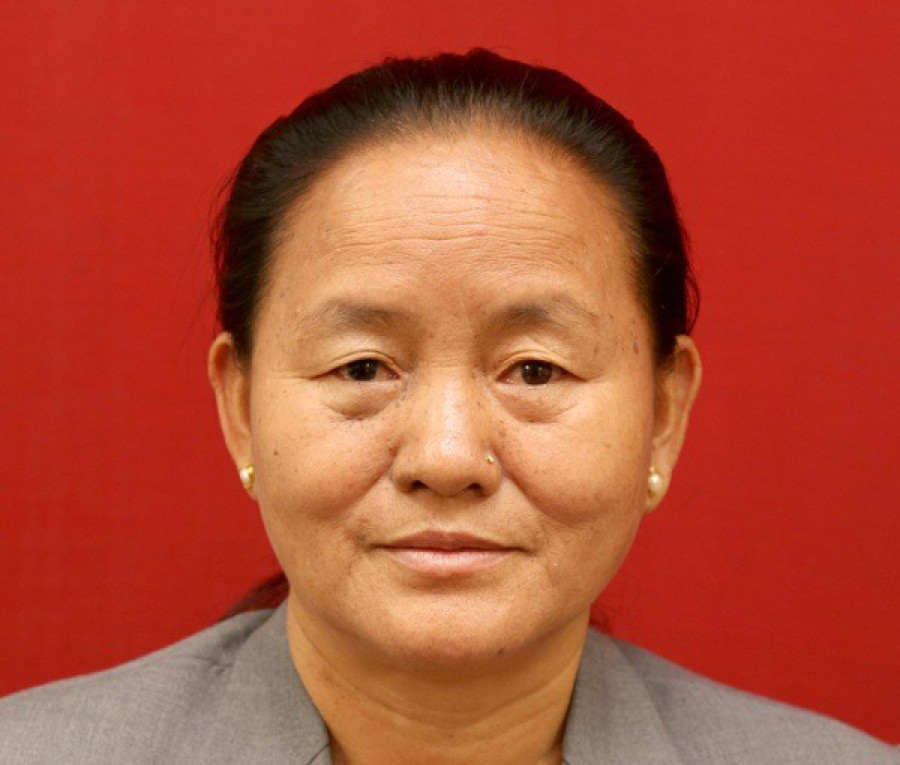Politics
NCP’s indecision on Speaker also exposes deeply entrenched patriarchy in the party
Tumbahangphe is keen on becoming Speaker, but leadership is fighting to install someone of their choice—and the leaders they have in mind are men.
Binod Ghimire
The indecision of the ruling Nepal Communist Party on the Speaker candidate may have exposed the festering factional feud, but it also shows how patriarchy is deeply entrenched in the party.
Deputy Speaker Shiva Maya Tumbahangphe, who holds a doctorate degree and has over two decades of political history, learned the ropes of running the House in the past two years. She is willing to lead the House as Speaker. But the ruling party leadership seems unconvinced. Though it was expected that women leaders from the party would make a pitch for Tumbahangphe, not many have thrown their weight behind her.
Senior women leaders in the party say many women lawmakers want Tumbahangphe to become the Speaker but they cannot speak up openly because they fear retribution from senior party men, who are jostling for appointing a man of their choice.
Asta Laxmi Shakya, a Standing Committee member, said there is no environment for women lawmakers to express their views.
“There is a sense of fear that they [women leaders] could be targeted if they speak against the top leadership,” Shakya, who has also been demanding an inclusive secretariat, told the Post. “However, some women leaders have raised their voice in favour of Tumbahangphe.”
Shakya herself was the contender for the post of chief minister in Province 3, but the party chose Dormani Poudel instead, even though he is junior to her in party politics. Shakya, along with Pampha Bhusal, strongly demanded an inclusive secretariat during the recently concluded Standing Committee meeting of the party. All nine members in the secretariat are men. Shakya and Bhusal, only two women in the 45-member Standing Committee, had proposed that the secretariat be made a 15-member body with the inclusion of more women leaders. The committee, however, rejected the proposal.
Shakya, who was vice-chairperson in the former CPN-UML, said there is a tendency in almost all political parties in Nepal to underestimate women leaders.
Binda Pandey, one of the female leaders in the ruling party who has consistently raised her voice for women empowerment, also said she stands for Tumbahangphe for the Speaker post.
She, however, does not have direct access to the top leadership, she said.
“That’s why I have been using the public forum to lobby for her,” Pandey told the Post. “Tumbahangphe’s demand is natural and legitimate.”
The party leadership, however, is planning to make Tumbahangphe resign in return for a ministerial berth, even though she has time and again said she is not interested to trade the Speaker’s post for a ministry.
The party has already conveyed a message to the Deputy Speaker to resign but she is waiting for the party to finalise the Speaker candidate.
A central working committee leader, who spoke on condition of anonymity, said Co-chairs KP Sharma Oli and Pushpa Kamal Dahal and party General Secretary Bishnu Poudel held a meeting on Saturday to discuss the candidate for the Speaker.
“The party will finalise its candidate before the next House meeting scheduled for Wednesday,” the leader told the Post.
In the ruling party, the former UML is for former Speaker Subas Nembang, while the former Maoists want Agni Sapkota as the Speaker.
“Appointing Nembang as the Speaker for the sixth time will be disrespect to him,” said Pandey. “He should be given any other party responsibility instead.”
Political analysts say the ongoing row in the ruling party over the post of Speaker and Tumbahangphe is emblematic of the patriarchal mindset that prevails in Nepali politics.
“If women have been given any responsibility in the parties, it’s mere tokenism. Unless there is a legal or constitutional obligation, women don’t get the influential positions,” Meena Vaidya Malla, a former professor of Political Science at Tribhuvan University, told the Post.
According to Malla, the fact that the 25-member Cabinet has just two female ministers suggests women participation is nothing but tokenism.
When the Nepal Communist Party (NCP) was formed after the merger of UML and Maoist Centre, the Election Commission had initially refused to register the newly formed party, citing a failure to ensure inclusion.
It was only after the party committed to ensuring inclusion in all its bodies at its national convention that the Election Commission relented and registered the party. But almost 18 months since unification, the party’s national convention has yet to be held.
Clause 15(4) of the Political Parties Registration Act clearly states that women must represent at least one-third of the membership in all committees of a political party.
“Ensuring women’s rightful participation is the duty of male leaders as well. Male leaders should also speak up for it,” said Shakya. “Sadly, women leaders too have failed to stand up for their rights, which have made things more difficult.”
According to Shakya, in Tumbahangphe’s case, even women leaders are divided.
“Had all women leaders been united, we could have been able to build more pressure on the leadership,” said Shakya.




 8.88°C Kathmandu
8.88°C Kathmandu














